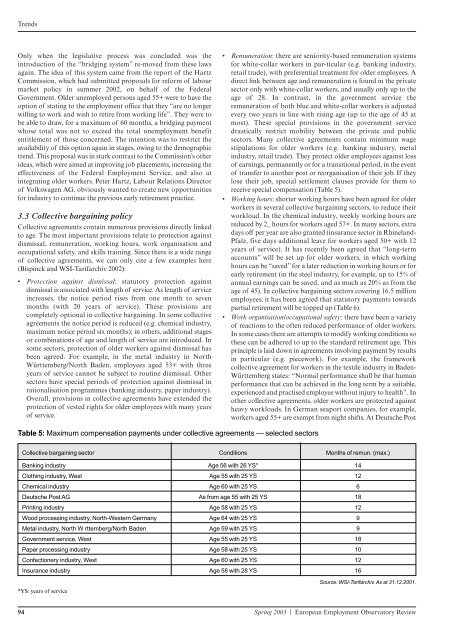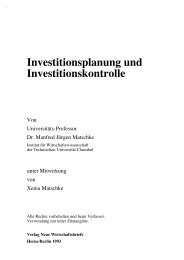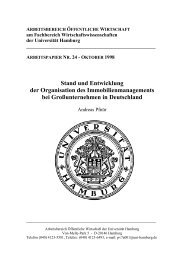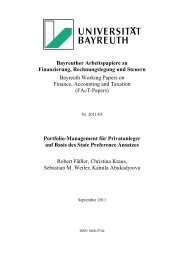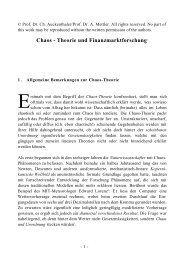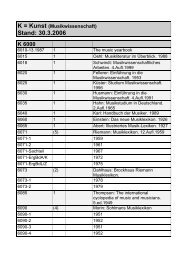FRANCE The
FRANCE The
FRANCE The
You also want an ePaper? Increase the reach of your titles
YUMPU automatically turns print PDFs into web optimized ePapers that Google loves.
Trends<br />
Only when the legislative process was concluded was the<br />
introduction of the “bridging system” re-moved from these laws<br />
again. <strong>The</strong> idea of this system came from the report of the Hartz<br />
Commission, which had submitted proposals for reform of labour<br />
market policy in summer 2002, on behalf of the Federal<br />
Government. Older unemployed persons aged 55+ were to have the<br />
option of stating to the employment office that they “are no longer<br />
willing to work and wish to retire from working life”. <strong>The</strong>y were to<br />
be able to draw, for a maximum of 60 months, a bridging payment<br />
whose total was not to exceed the total unemployment benefit<br />
entitlement of those concerned. <strong>The</strong> intention was to restrict the<br />
availability of this option again in stages, owing to the demographic<br />
trend. This proposal was in stark contrast to the Commission’s other<br />
ideas, which were aimed at improving job placements, increasing the<br />
effectiveness of the Federal Employment Service, and also at<br />
integrating older workers. Peter Hartz, Labour Relations Director<br />
of Volkswagen AG, obviously wanted to create new opportunities<br />
for industry to continue the previous early retirement practice.<br />
3.3 Collective bargaining policy<br />
Collective agreements contain numerous provisions directly linked<br />
to age. <strong>The</strong> most important provisions relate to protection against<br />
dismissal, remuneration, working hours, work organisation and<br />
occupational safety, and skills training. Since there is a wide range<br />
of collective agreements, we can only cite a few examples here<br />
(Bispinck and WSI-Tarifarchiv 2002):<br />
• Protection against dismissal: statutory protection against<br />
dismissal is associated with length of service. As length of service<br />
increases, the notice period rises from one month to seven<br />
months (with 20 years of service). <strong>The</strong>se provisions are<br />
completely optional in collective bargaining. In some collective<br />
agreements the notice period is reduced (e.g. chemical industry,<br />
maximum notice period six months); in others, additional stages<br />
or combinations of age and length of service are introduced. In<br />
some sectors, protection of older workers against dismissal has<br />
been agreed. For example, in the metal industry in North<br />
Württemberg/North Baden, employees aged 53+ with three<br />
years of service cannot be subject to routine dismissal. Other<br />
sectors have special periods of protection against dismissal in<br />
rationalisation programmes (banking industry, paper industry).<br />
Overall, provisions in collective agreements have extended the<br />
protection of vested rights for older employees with many years<br />
of service.<br />
Table 5: Maximum compensation payments under collective agreements — selected sectors<br />
• Remuneration: there are seniority-based remuneration systems<br />
for white-collar workers in par-ticular (e.g. banking industry,<br />
retail trade), with preferential treatment for older employees. A<br />
direct link between age and remuneration is found in the private<br />
sector only with white-collar workers, and usually only up to the<br />
age of 28. In contrast, in the government service the<br />
remuneration of both blue and white-collar workers is adjusted<br />
every two years in line with rising age (up to the age of 45 at<br />
most). <strong>The</strong>se special provisions in the government service<br />
drastically restrict mobility between the private and public<br />
sectors. Many collective agreements contain minimum wage<br />
stipulations for older workers (e.g. banking industry, metal<br />
industry, retail trade). <strong>The</strong>y protect older employees against loss<br />
of earnings, permanently or for a transitional period, in the event<br />
of transfer to another post or reorganisation of their job. If they<br />
lose their job, special settlement clauses provide for them to<br />
receive special compensation (Table 5).<br />
• Working hours: shorter working hours have been agreed for older<br />
workers in several collective bargaining sectors, to reduce their<br />
workload. In the chemical industry, weekly working hours are<br />
reduced by 2_ hours for workers aged 57+. In many sectors, extra<br />
days off per year are also granted (insurance sector in Rhineland-<br />
Pfalz, five days additional leave for workers aged 50+ with 12<br />
years of service). It has recently been agreed that “long-term<br />
accounts” will be set up for older workers, in which working<br />
hours can be “saved” for a later reduction in working hours or for<br />
early retirement (in the steel industry, for example, up to 15% of<br />
annual earnings can be saved, and as much as 20% as from the<br />
age of 45). In collective bargaining sectors covering 16.5 million<br />
employees, it has been agreed that statutory payments towards<br />
partial retirement will be topped up (Table 6).<br />
• Work organisation/occupational safety: there have been a variety<br />
of reactions to the often reduced performance of older workers.<br />
In some cases there are attempts to modify working conditions so<br />
these can be adhered to up to the standard retirement age. This<br />
principle is laid down in agreements involving payment by results<br />
in particular (e.g. piecework). For example, the framework<br />
collective agreement for workers in the textile industry in Baden-<br />
Württemberg states: “Normal performance shall be that human<br />
performance that can be achieved in the long term by a suitable,<br />
experienced and practised employee without injury to health”. In<br />
other collective agreements, older workers are protected against<br />
heavy workloads. In German seaport companies, for example,<br />
workers aged 55+ are exempt from night shifts. At Deutsche Post<br />
Collective bargaining sector Conditions Months of remun. (max.)<br />
Banking industry Age 56 with 26 YS* 14<br />
Clothing industry, West Age 55 with 25 YS 12<br />
Chemical industry Age 60 with 25 YS 6<br />
Deutsche Post AG As from age 55 with 25 YS 18<br />
Printing industry Age 58 with 25 YS 12<br />
Wood processing industry, North-Western Germany Age 64 with 25 YS 9<br />
Metal industry, North W rttemberg/North Baden Age 59 with 25 YS 9<br />
Government service, West Age 55 with 25 YS 18<br />
Paper processing industry Age 58 with 25 YS 10<br />
Confectionery industry, West Age 60 with 25 YS 12<br />
Insurance industry Age 58 with 28 YS 16<br />
*YS: years of service<br />
Source: WSI-Tarifarchiv. As at 31.12.2001.<br />
94 Spring 2003 | European Employment Observatory Review


